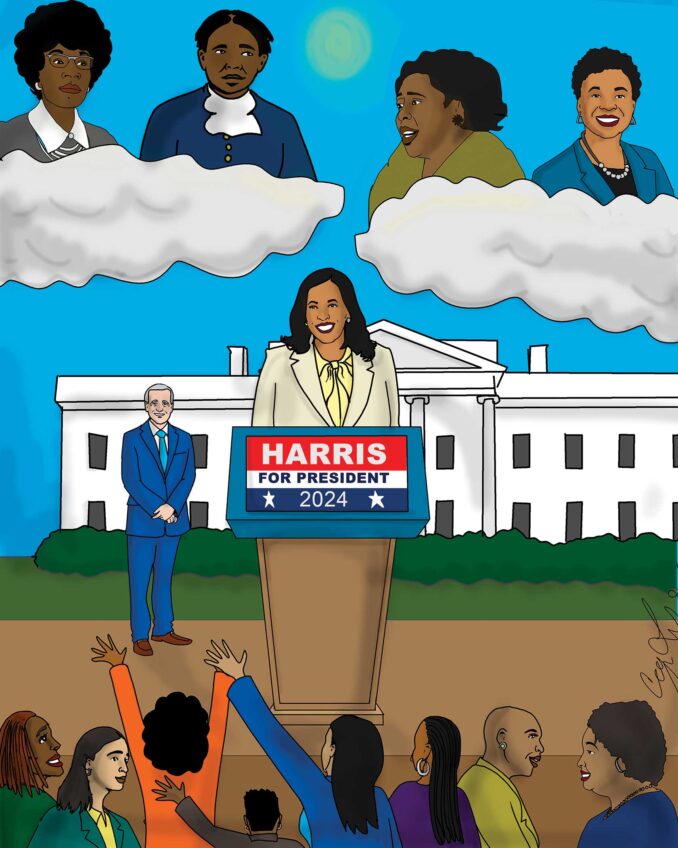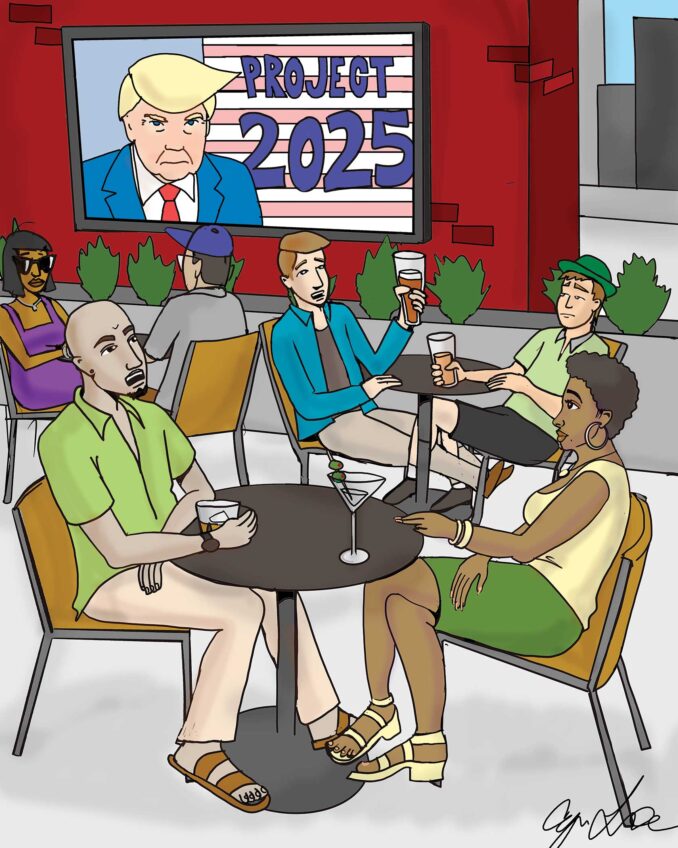The presidential battle for the Latino vote will be fierce
GOP leaders are again salivating at the thought that they can make like George W. Bush who got more than 40 percent of the Latino vote in the 2004 presidential election and snatch a significant number of supposedly frustrated, disenchanted Latino voters from the Democrats in 2012.
At first glance, there seems to be some cause for the optimism. Many Latinos are plainly peeved at President Barack Obama for supposedly not doing and saying more about immigration reform. Their pique at Obama is based on their contention that he sees immigration reform as either a back burner priority or a lose-lose proposition, given the furor of wide segments of moderate and conservative voters to crack down on illegal immigration.
Then there’s the continued push by some states to usurp federal authority on immigration and pass draconian immigration laws against undocumented workers.
The GOP has also done a much better job in the last couple of years in radically upping the number of Latino Republicans that hold state offices. In 2006, Democrats had a top-heavy bulge of 6 to 1 over Republicans in the number of Latino elected officials. Now the Democrat-GOP edge has sharply narrowed to 5 to 3. Even more worrisome to Democrats, Latinos bagged governorships and a Senate seat in the crucial battleground states of Nevada, New Mexico and Florida.
Obama won those states in 2008, and Latino voters played a huge role in making that win possible. Presumptive GOP presidential frontrunner Candidate Mitt Romney has publicly hinted that he’d be comfortable with picking popular Hispanic Florida Sen. Marco Rubio as his VP running mate. If that ticket pans out, Obama would have a mammoth uphill fight to win Florida again. To make matters worse, the Republican State Leadership Committee recently announced that it would pump millions more into recruiting Latino candidates to run for state offices in 2012.
The issue of immigration reform and the increased number of GOP officials, though, are for now just speculative concerns. There’s no guarantee that immigration will be the dominant issue when the presidential race kicks into high gear in 2012 or that the simply adding more Latino faces to the ranks of GOP elected official will turn the tide for the GOP. Despite the ramp up in Latino officials, the Rubio threat, and current immigration grumblings, polls consistently show that Latino voters by big margins will back Obama.
Yet, Republican strategists insist that the trump card issues that Bush adroitly used to appeal to many Hispanic voters are still very much on the table. They’re right. The emphasis on small business, anti-welfare spending and family values are still issues of importance to legions of Hispanics. Polls show that many Latinos are staunchly opposed to gay marriage and abortion, and in favor of family values and school prayer.
Latino evangelicals, for instance, are growing in numbers and influence; the majority is conservative, even fundamentalist. Even in the worst of voting times for the GOP, Latinos have never been the monolithic bloc for the Democrats that black voters have been. They have consistently given the GOP one quarter to one-third of their vote and in the states where the GOP has softened its anti-immigration rhetoric, and actively courted Latino voters, the numbers have been even greater.
In the “National Survey of Latinos: The Latino Electorate,” conducted in 2002 by the Pew Hispanic Center, one-fifth of Latinos said they were Republicans. That number has remained steady in the decade since.
GOP presidential hopeful Rick Perry has gotten significant support in Texas from Latino voters. He got it in part because of conservative fiscal and pro-evangelical, and pro-family pitch, and in part because he’s been considered legislative-friendly to Latinos on education, immigration issues and his willingness to appoint Latinos to key state positions.
But religious affiliation and sensitivities almost certainly will pale in relation to the two things that the White House race will hinge on with Latino voters. The first is the economy. Latinos and blacks have been the hardest hit by high joblessness and home foreclosures. A worsening of economic conditions and the sense that things won’t get any better will hurt Obama.
But what can also inflict a wound is the enthusiasm factor. Latinos will almost certainly give Obama the majority of their vote, but it’s not percentages that count, it’s the number of voters that turn out.
If there’s any significant fall off in the number of Latino voters that march to the polls, that will pose a deep peril for Obama. GOP leaders can be counted on to do everything they can to keep those numbers down.
Republicans know that they don’t need a majority to punch the Republican ticket; they only need a strategic minority of Hispanic voters in the must-win states to punch the GOP ticket. Obama knows that too, and he’ll wage a fierce battle to make sure that doesn’t happen.
Earl Ofari Hutchinson is an author and political analyst.






